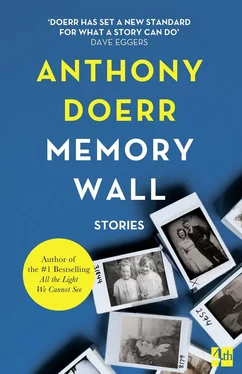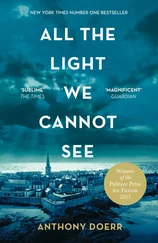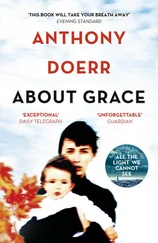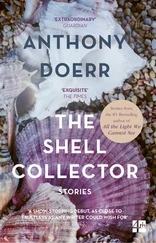The bus fills with township girls: office cleaners, waitresses, laundresses, women who go by one name in Cape Town and another in the townships, housekeepers called Sylvia or Alice about to become mothers called Malili or Momtolo.
Drizzle streaks the windows. Voices murmur in Xhosa, Sotho, Tswana. The gaps between streetlights lengthen; soon Pheko can see only the upflung penumbras of billboard spotlights here and there in the dark. Drink Opa. Report Cable Thieves. Wear a Condom.
Khayelitsha is thirty square miles of shanties made of aluminum and cinder blocks and sackcloth and car doors. At the century’s turn it was home to half a million people—now it’s four times bigger. War refugees, water refugees, HIV refugees. Unemployment might be as high as sixty percent. A thousand haphazard light towers stand over the shacks like limbless trees. Women carry babies or plastic bags or vegetables or ten-gallon water jugs along the roadsides. Men wobble past on bicycles. Dogs wander.
Pheko gets off at Site C and hurries along a line of shanties in the rain. Windchimes tinkle. A goat picks its way through puddles. Torpid men perch on fenders of gutted taxis or upended fruit crates or beneath ragged tarps. Someone a few alleys over lights a firework and it blooms and fades over the rooftops.
B478A is a pale green shed with a sandy floor and a light blue door. Three treadless tires hold the roof in place. Bars seal off the two windows. Temba is inside, still awake, animated, whispering, nearly jumping up and down in place. He wears a T-shirt several sizes too large; his little eyeglasses bounce on his nose.
“Paps,” he says, “Paps, you’re twenty-one minutes late! Paps, Boginkosi caught three cats today, can you believe it? Paps, can you make paraffin from plastic bags?”
Pheko sits on the bed and waits for his vision to adjust to the dimness. The walls are papered with faded supermarket circulars. Dish soap for R1.99. Juice two for one. Yesterday’s laundry hangs from the ceiling. A rust-red stove stands propped on bricks in the corner. Two metal-and-plastic folding chairs complete the furniture.
Outside the rain sifts down through the vapor lights and makes a slow, lulling clatter on the roof. Insects creep in, seeking refuge; gnats and millipedes and big, glistening flies. Twin veins of ants flow across the floor and braid into channels under the stove. Moths flutter at the window screens. Pheko hears the accountant’s voice in his ear: You had to see this coming. He sees his silver pen flashing in the light of Alma’s kitchen.
“Did you eat, Temba?”
“I don’t remember.”
“You don’t remember?”
“No, I ate! I ate! Miss Amanda had samp and beans.”
“And did you wear your glasses today?”
“I wore them.”
“Temba.”
“I wore them, Paps. See?” He points with two fingers to his face.
Pheko slips off his shoes. “Okay, little lamb. I believe you. Now choose a hand.” He holds out two fists. Temba stands barefoot in his overlarge jersey, blinking his brown eyes behind his glasses.
Eventually he chooses left. Pheko shakes his head and smiles and reveals an empty palm.
“Nothing.”
“Next time,” says Pheko. Temba coughs, wipes his nose. He seems to swallow back a familiar disappointment.
“Now take off your glasses and give me one of your barnacle attacks,” says Pheko, and Temba stows his glasses atop the stove and leaps onto his father, wrapping his legs around Pheko’s ribs. They roll across the bed. Temba squeezes his father around the neck and back.
Pheko rears up, makes exaggerated strides around the little shed while the boy clings to him. “Paps,” Temba says, talking into his father’s chest. “What was in the other hand? What did you have this time?”
“Can’t tell you,” says Pheko. He pretends to try to shake off the boy’s grip. “You got to guess right next time.”
Pheko stomps around the house. The boy hangs on. His forehead is a stone against Pheko’s sternum. His hair smells like dust, pencil shavings, and smoke. Rain murmurs against the roof.
Monday night Roger Tshoni brings the quiet little memory-tapper named Luvo with him up into the posh suburb of Vredehoek and breaks, for the twelfth time, into Alma Konachek’s house. Roger has white hair and a white beard and a nose like a large brown gourd. His teeth are orange. He gives off a reek of cheap tobacco. The band of his straw hat has Ma Horse printed three times around the circumference.
Each time Roger has picked the lock on the rape gate, Alma has woken up. He thinks it might have to do with an alarm but he has not seen any alarms inside the house. Roger has given up trying to hide anyway. Tonight he hardly bothers to keep quiet. He waits in the doorway, counting to fifteen, then leads the boy inside.
Sometimes she threatens to call the police. Sometimes she calls him Harold. Sometimes something worse: boy. Or kaffir. Or darkie. As in, Get to work, boy. Or: Goddammit, boy. Sometimes she stares right through him with her empty eyes as if he were made of smoke. If he frightens her he simply walks away and smokes a cigarette in the garden and breaks back in through the kitchen door.
Tonight Roger and Luvo stand in the living room a moment, both of them wet with rain, looking out at the city through the glass balcony doors, a few red lights blinking among ten thousand amber ones. They wipe their shoes; they listen as Alma mutters to herself in the bedroom down the hall. The ocean beyond the waterfront is an invisible blackness in the rain.
“Like an owl, this lady,” whispers Roger.
The boy named Luvo takes off his wool cap and scratches between the four ports installed in his head and climbs the stairs. Roger crosses into the kitchen, takes three eggs from the refrigerator, and sets them in a pot to boil. Before long Alma comes shambling out from the bedroom, barefoot, bald, no bigger than a girl.
Roger’s hands whisper across his shirtfront, find an unlit cigarette tucked into his hatband, and return to his pockets. It’s his hands, he has learned, more than anything else, that terrify her. Long hands. Brown hands.
“You’re—” hisses Alma.
“Roger. You call me Harold sometimes.”
She drags a wrist across her nose. “I have a gun.”
“You don’t. You couldn’t shoot me anyway. Come, sit.” Alma looks at him, confounded. But after a moment she sits. The blue ring of flame on her cooktop casts the only light. Down in the city the pinpoints of automobile lights dilate and dissolve as they travel between raindrops on the windowglass.
The house feels close around Roger tonight, with its ratcheting grandfather clock and spotless sofas and the big display cabinet in the study. He wants desperately to light his cigarette.
“You got some new cartridges today from your doctor, didn’t you, Alma? I saw that little houseboy of yours drive you down to Green Point.”
Alma keeps silent. The eggs rattle in their pot. She looks as if time has stopped inside her: rope-veined, birdlike, expressionless. A single blue artery pulses crosswise above her right ear. The four rubber caps are seated tightly against her scalp.
She frowns slightly. “Who are you?”
Roger doesn’t answer. He shuts off the burner and lifts out the three steaming eggs with a slotted spoon.
“I am Alma,” Alma says.
“I know it,” Roger says.
“I know what you’re doing.”
“Do you?” He places the eggs on a dishtowel in front of her. A dozen times now over the past month they’ve done this, sat at her kitchen table in the middle of the night, Roger and Alma, tall black man, elderly white woman, the lights of Trafalgar Park and the railway yards and the waterfront strewn below. A tableau not quite of this world. What does it mean, Roger wonders distantly, that the countless failures of his life have funneled him into this exact circumstance?
Читать дальше












